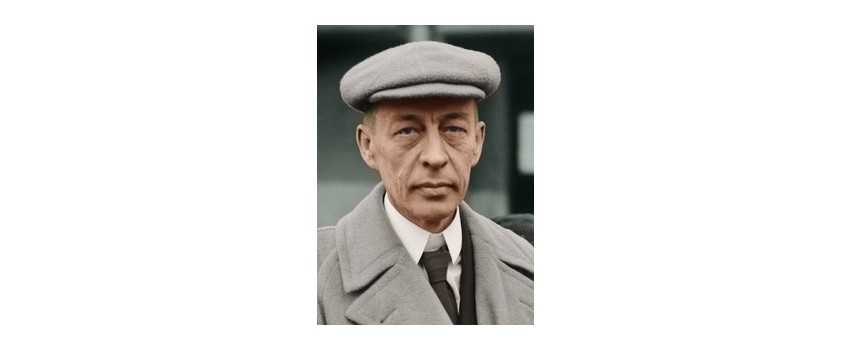Rachmaninoff, Rhapsody On A Theme Of Paganini For Cello (Boosey)
Rachmaninoff, Rhapsody on a Theme of Paganini for Cello (Boosey
Sergei Rachmaninov, born on April 1, 1873, in Semyonovo, Russia, was a multi-talented musician known for his exceptional skills as a pianist, conductor, and composer. Throughout his illustrious career, Rachmaninov created numerous masterpieces that continue to captivate audiences worldwide. This article delves into the life and music of Sergei Rachmaninov, exploring his early years, major works, and his influence on the world of classical music.
Early Years and Musical Prodigy
As a young child, Sergei Rachmaninov displayed an extraordinary talent for music. His piano skills and songwriting abilities amazed his instructors, who recognized his exceptional potential from an early age. Rachmaninov's musical journey began with his First Piano Concerto, composed when he was just 18 years old. This remarkable composition, conducted by himself, took the world by storm and established him as a prodigious talent in the music industry.
However, not all of Rachmaninov's early works garnered immediate success. His first symphony, premiered under the direction of Vladimir Glazunov, was met with disappointment and criticism. Contemporary critics deemed the piece unperformable, resulting in its subsequent abandonment. This failure plunged Rachmaninov into a deep state of despair, leading him to seek unconventional methods, such as hypnosis, to overcome his creative block.
The Piano Concerto No.2: A Timeless Classic
One of Rachmaninov's most celebrated compositions is the Piano Concerto No.2. This masterpiece has stood the test of time and continues to be regarded as one of the best-recorded piano concertos in history. The hauntingly beautiful melodies and intricate harmonies of this concerto have resonated with audiences for decades, evoking a wide range of emotions.
Notably, the Piano Concerto No.2 gained significant popularity after its inclusion in the film "Brief Encounter." The memorable phrase from the concerto became a favorite among listeners, further cementing its place as a beloved piece in the classical music repertoire.
Rachmaninov's Major Choral Work
In addition to his piano compositions, Rachmaninov made notable contributions to choral music. During his career, he composed several major choral works that showcased his versatility as a composer. One particular event that captured attention was Rachmaninov's surprising revelation during the premiere of a major choral work. He announced that he had been secretly engaged to Natalya, his first cousin, adding a touch of personal intrigue to his already illustrious career.
Rachmaninov: A Master of Many Talents
Beyond his prowess as a composer, Sergei Rachmaninov was also revered for his exceptional skills as a conductor and pianist. His performances as a conductor were highly regarded, earning him the prestigious role of Principal Conductor of the Bolshoi Theatre in 1904. Rachmaninov's natural ability to interpret and bring out the best in orchestral performances solidified his status as one of the most respected conductors of his time.
Moreover, his extraordinary piano skills were praised by both critics and audiences alike. Rachmaninov's technical proficiency and emotional depth in his piano performances were unparalleled, earning him recognition as one of the greatest pianists of his era. His reputation as a virtuoso pianist led to several notable opportunities in the United States, including being considered for the role of principal conductor for the Boston Symphony Orchestra.
Legacy and Influence
Sergei Rachmaninov's impact on the world of classical music cannot be overstated. His compositions continue to inspire and captivate musicians and listeners alike. Rachmaninov's works, characterized by their rich harmonies and evocative melodies, have become timeless classics that are regularly performed in concert halls around the globe.
Furthermore, Rachmaninov's influence extends beyond his own compositions. His unique style and approach to music have inspired countless composers and musicians to explore new avenues of expression. The emotional depth and technical brilliance found in his works continue to be a source of inspiration for aspiring artists in the classical music world.
Conclusion
Sergei Rachmaninov's life and music are a testament to his extraordinary talent and enduring legacy. From his early years as a musical prodigy to his rise as a renowned composer, conductor, and pianist, Rachmaninov's contributions to the world of classical music are profound. His ability to evoke powerful emotions through his compositions and performances has left an indelible mark on the history of music. As we continue to appreciate and celebrate his works, Rachmaninov's genius will forever be remembered as a true gift to the world of music.

Rachmaninoff, Rhapsody on a Theme of Paganini for Cello (Boosey
Sonata in G Minor for cello and piano by Rachmaninoff
Symphony No. 2, Theme from the third movement, arr. by John York for cello and piano by Rachmaninoff